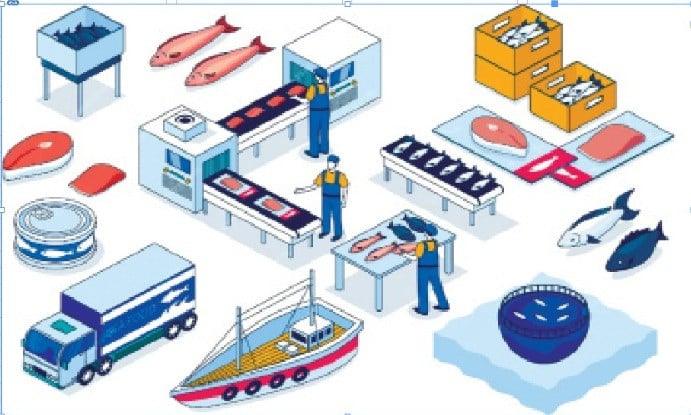Islamabad:
Pakistan is ready to win $ 200 million of the export of tuna fish in the coming years due to an industry review.
The Federal Minister of Maritime Affairs, Muhammad Junaid Anwar Chaudhry, has announced that the Pakistan tuna sector is scheduled for an impulse of $ 200 million after the assignments of global quotas and regulatory reforms.
For the first time, Pakistan has secured a tuna fishing fee of 25,000 metric tons of the Indian Ocean Tuna Commission (IoTC), which includes 15,000 tons of yellow tuna and 10,000 tons of skipjack tuna, according to an official press statement. These quotas are aligned with the principles of management of the climate conscious fishing destined to protect marine biodiversity and reduce pressure on oceanic ecosystems.
“This is a historical achievement that promises important currency profits,” said the minister. “With international prices for these tuna species that range between $ 5 and $ 7 per kilogram, and potentially higher with added value processing, the economic potential is enormous.”
Calling “a turning point for the tuna sector of Pakistan”, Chaudhry said that although the country currently catches more than 45,000 metric tons of tuna every year, much of this high value resource has escaped the formal economy due to unregulated operations.
To capture the total economic value of the resource, the minister stressed that “a series of reforms have been launched”, including the introduction of the national fishing and aquaculture policy, aimed at unifying fragmented regulatory frameworks while promoting fishing techniques generating environmental and income generators.
“This policy framework supports Pakistan’s obligations under international climate and marine conservation agreements,” said the Federal Minister.
He also announced an important milestone for Pakistan, and pointed out that for the first time in the 28 years of history of the Indian Ocean Tunnel Commission (IoTC), a senior official of the Ministry of Maritime Affairs of Pakistan, has been elected as president of his Permanent Committee on Administration and Finance, a significant step in strengthening the role of Pakistan in the global government of Global Tuna.
The Anguico Ocean Tuna Commission (IoTC) is an intergovernmental organism that includes 30 countries of members, established under the United Nations Food and Agriculture Organization (FAO). Its mandate is to handle tuna and species related to the Indian Ocean promoting sustainable use through scientific research, the distribution of quotas and regulatory frameworks.
As part of the broader adaptation efforts, the minister said that destructive fishing methods, such as skill and drag, are gradually eliminated, replaced by more selective and environmentally respectful long -term techniques with the environment.
“This transition reduces incidental capture and supports the health of the ocean against the stressful factors driven by the climate such as the heating of the waters and the changing migration patterns,” he added.
FAO has supported this initiative by providing 10 longline fishing kits without demonstration to local fishing communities. This transition is expected to increase the value of the product of an average of $ 2 to $ 8 per kilogram, said the minister.
He said that more reforms covered the review of certification and test rates for seafood exports, which resulted in an increase in RS48 million revenues to RS250 million. In addition, infrastructure initiatives have been launched, including the revitalization of Korangi fishing, with the construction of a new auction room and a floating jetty, aimed at improving tuna landings and increasing exports, particularly to the European Union.
The minister declared that the Pakistan tuna sector is now on the threshold of a great economic change. With the insured quotas, the current regulatory reforms and the growth of international cooperation, the country is ready to become a key player in the global tuna trade, marking the beginning of a new era of sustainable growth and currency generation for the fishing sector.




